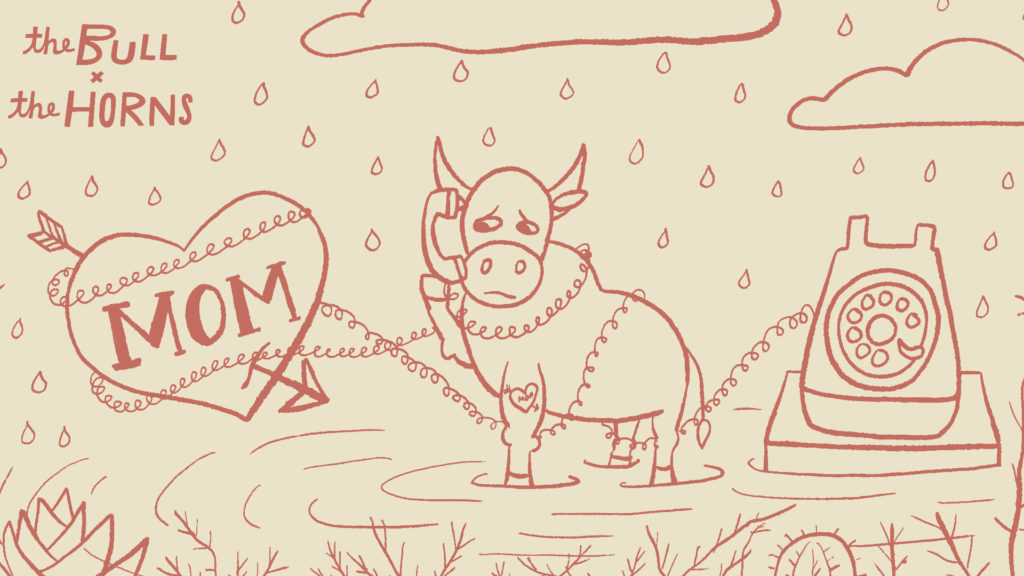Psychologists Art Markman and Bob Duke address the benefits of having a realistic perspective of our relationships.
Q: To put it plainly, I have a strained relationship with my mom. I used to believe the tension would release if I put up healthy boundaries. However, it seems no matter how I approach her or what I do she’s constantly upset or offended, and I end up more frustrated than before. I’m starting to lose hope that we’ll ever have a peaceful resolve. How can I stay optimistic about our relationship?
—Strained
Dear Strained:
All human relationships require acceptable compromises that accommodate the interests of all parties involved. Unfortunately, some people stubbornly insist on doing things their own way and seem unwilling to adjust their behavior in the interest of developing and maintaining healthy relationships. There are few things more hurtful than having earnest efforts at kindness met with hostility, and it’s certainly difficult to maintain a positive attitude when all of your efforts are met with negative responses, particularly when those responses come from a loved one like a parent.
Your frustration arises from the gap between where you are right now and where you would like to be in the future, and that gap creates motivational energy. The more important the situation, the stronger the emotions that come along with the gap. Such gaps, and the sense of dissatisfaction that accompanies them, often propel us to take action to close the gaps.
Consider the fact that constructive optimism requires a realistic perspective—understanding what’s possible and accepting limitations.
As you point out, you are frustrated with the relationship, which reflects your loss of agency in dealing with your mother. Your efforts to set boundaries to establish some control thus far haven’t improved the situation, and as a result you feel a little helpless. You obviously care about the relationship (otherwise, you wouldn’t feel anything at all), but you don’t believe that there is much you can do about it.
The process of lessening your frustration and making the relationship more positive for you must begin with your accepting the fact that your mother is unlikely to quickly change her behavior in response to what you do. In other words, you have to accept your lack of agency in controlling the nature of the relationship. That may not seem like an optimistic point of view, but consider the fact that constructive optimism requires a realistic perspective—understanding what’s possible and accepting limitations. Making this your starting point for moving forward may help you recognize that your mother’s reactions are not caused by your attempts to reach out, but are more likely a result of a complex suite of life circumstances and long-practiced behavior.
Once you stop trying to act in ways that you hope will change your mother’s reactions, you can focus on ways to make the relationship more positive for you, and perhaps, eventually for her as well. And this begins with adjusting your expectations. All of us understandably expect that acts of kindness will be met with reciprocating kindness. When the reciprocation is not forthcoming or, worse, is replaced by negative reactions, the hurt is keenly felt.
Consider the possibility of adopting an attitude of tenacious kindness absent of an expectation of reciprocation. We realize that’s a mouthful! You obviously care for your mother, and it’s important to consider that doing things for her is in many ways good for you, irrespective of her response. Imagine what small things you can do that don’t involve extended interactions. You might stop by briefly to drop off a plant that you think she’d like, for example; or you may send her a note card and recount a lovely memory you have about something positive in your shared past. No expectation of reciprocation.
You probably know well by now the circumstances that lead to your mother’s becoming offended or upset. Avoid them to the extent you can. Focus instead on brief interactions, in which you remain tenaciously kind, and you come away with the good feeling that you’ve done something nice for your mother, whether she expresses appreciation or not.
It may also be good for your own state of mind to recall positive moments that you and she have shared in the past (you may have treasured photographs that trigger these memories), and to find ways to mention them to her from time to time. Look for positive moments, however brief, that you can take away from each encounter. Perhaps she looks particularly cheerful one day, or she says something funny, or she reminds you of something you haven’t thought of in a long time. Focusing on the positive elements of your interactions may shift your perceptions and create more positive feelings.
Wanting other people in our lives to conform to our expectations (however reasonable our expectations may seem) often leads to disappointment and frustration. Showing kindness toward those we care about, recognizing that they may not be appreciative of what we have to offer, helps maintain a sense of control, and may afford a sense of gratitude about our having the ability to do things for others.
—Dr. Art Markman and Dr. Bob Duke
The Bull x The Horns advice column is authored by psychologists Art Markman and Bob Duke, hosts of the Two Guys on Your Head podcast. This column represents the advice of Dr. Art Markman and Dr. Bob Duke and not the views or opinions of Frost Bank.
